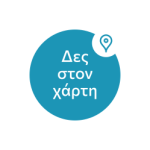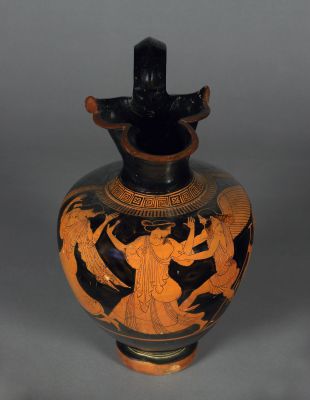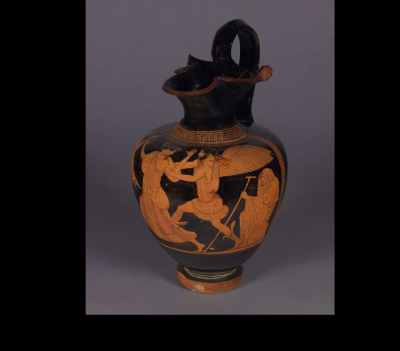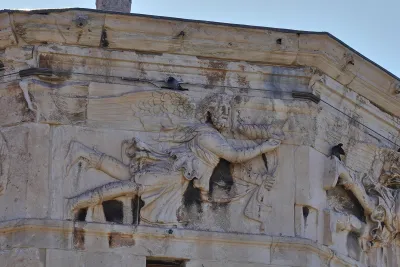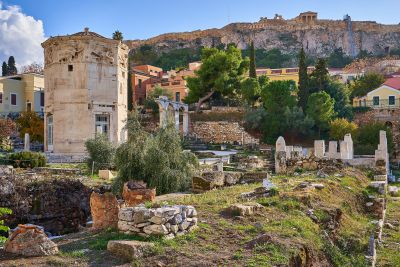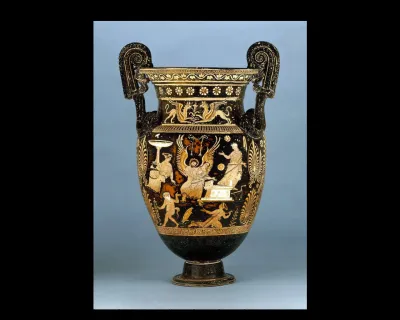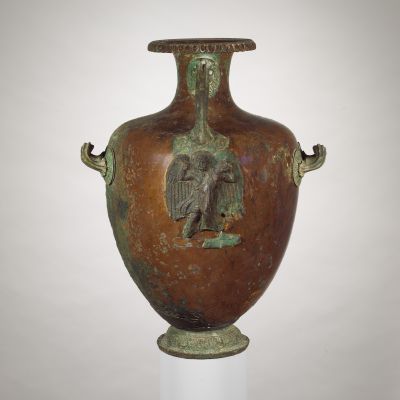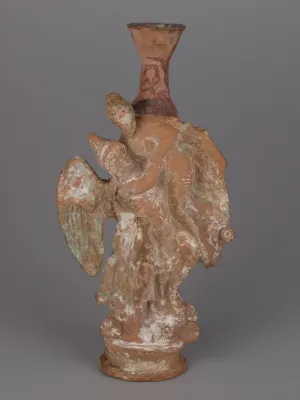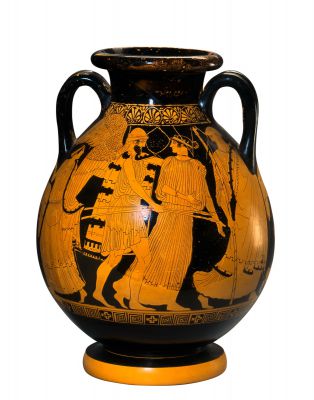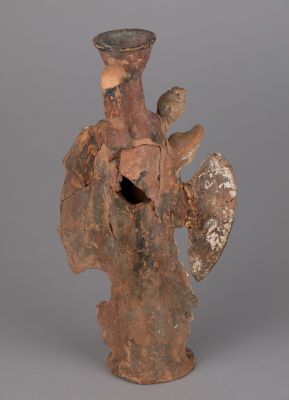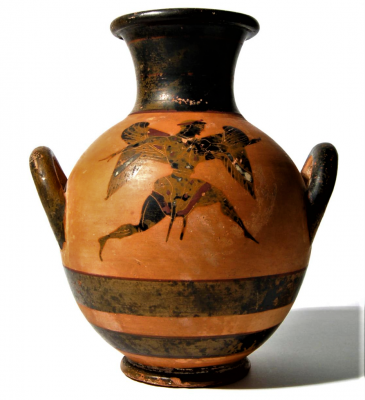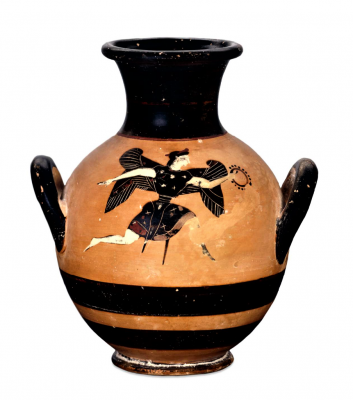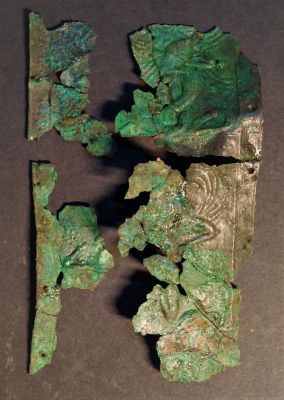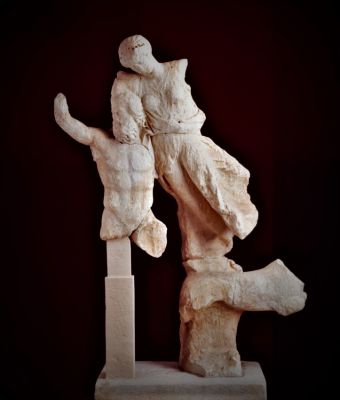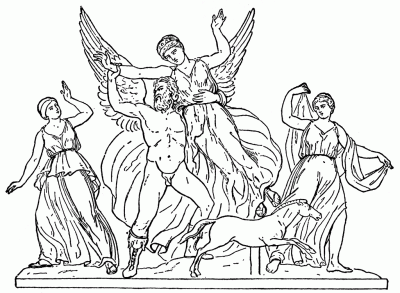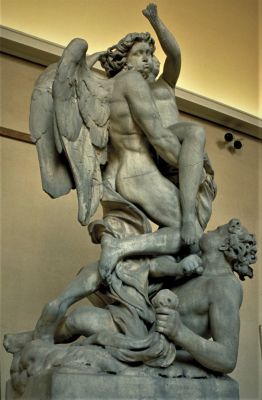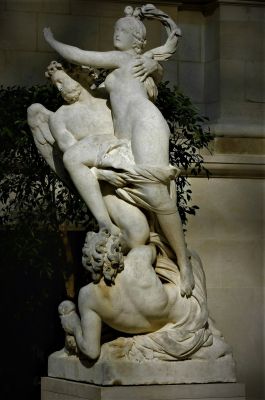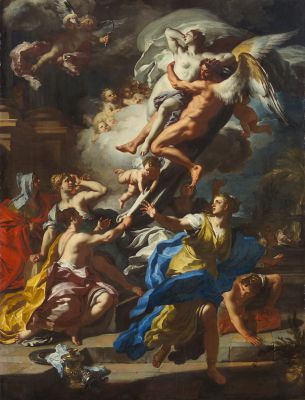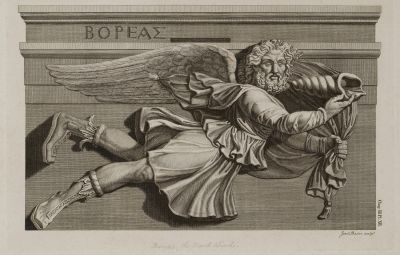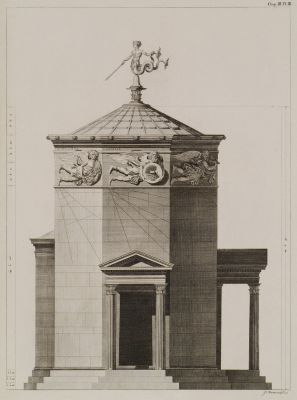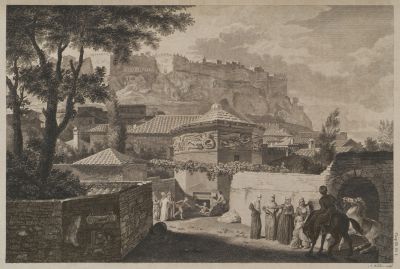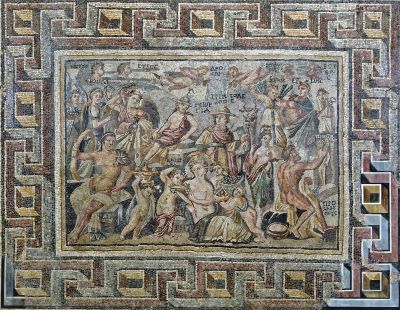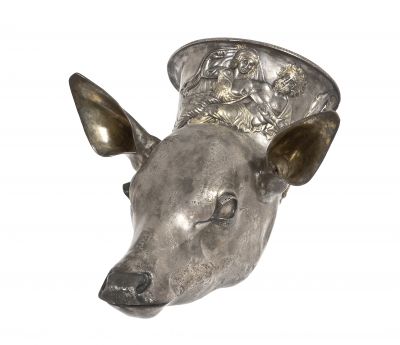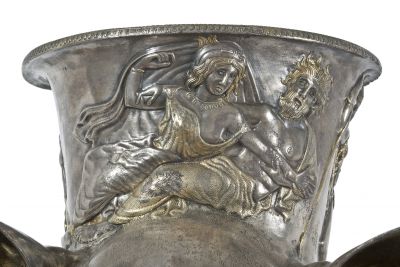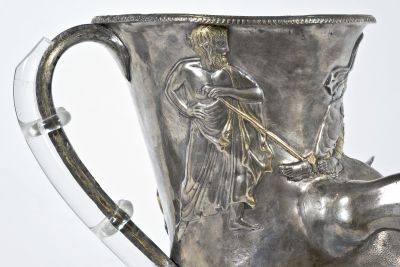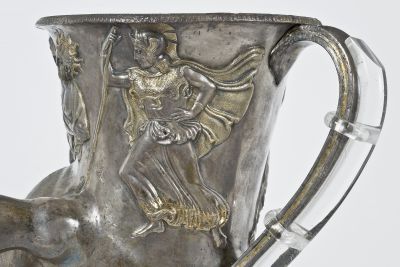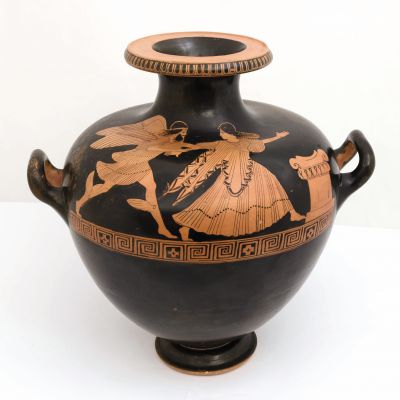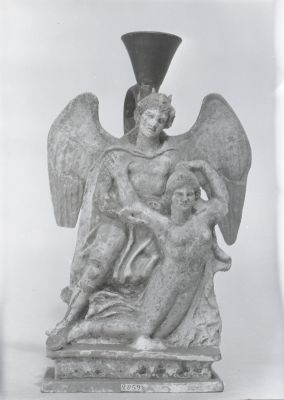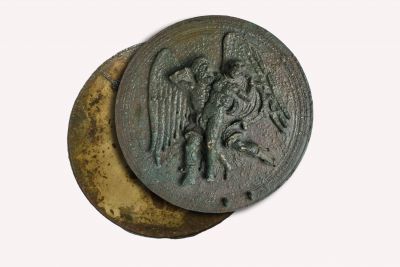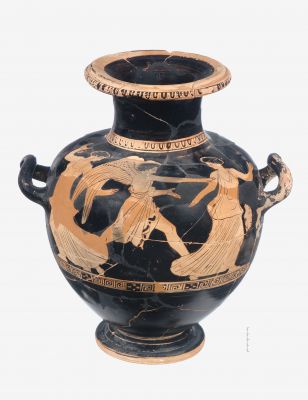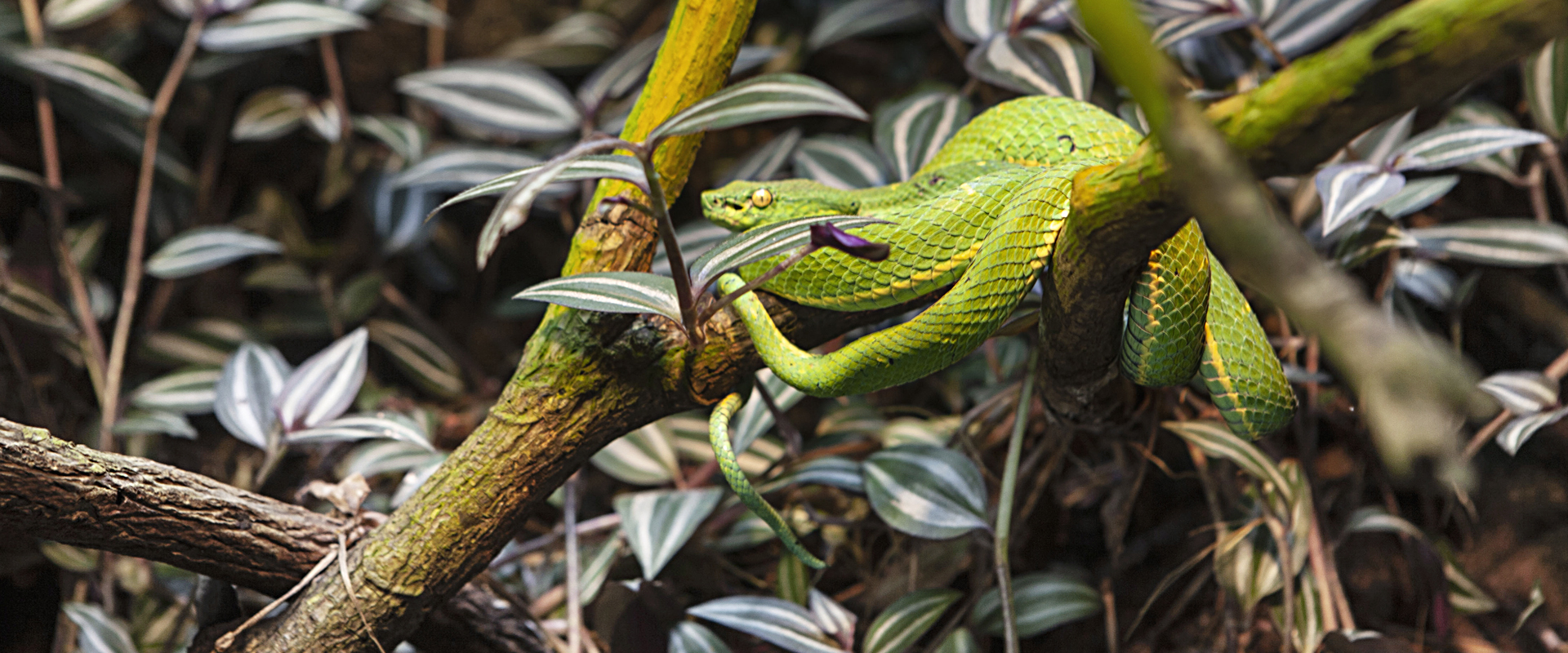
Ο Βορέας ήταν γιος του Αστραίου και της τιτανίδας Ηούς ή του Στρυμόνα και της Ευτέρπης (ή Τερψιχόρης) ή γιος του Αιόλου. Θεωρείται η προσωποποίηση του βόρειου ανέμου και είναι αδελφός του Ζέφυρου, του Νότου και του Εύρου. Ήταν, επίσης, ο θεός του χειμώνα και η κρύα πνοή του κατέβαινε από τα βουνά της Θράκης μέχρι τη γη της Θεσσαλίας. Ο Βορέας κατοικούσε είτε κοντά στον ποταμό Στρυμόνα ή στο όρος Αίμος σε μια σπηλιά με επτά πύλες. Αναπαριστάται συνήθως με γένια και φτερά, ενώ ο Παυσανίας παραδίδει την εικόνα του Βορέα με φίδια στη θέση των ποδιών. Είχε απαγάγει την Ωρείθυια, κόρη του βασιλιά της Αθήνας Ερεχθέα ή Εριχθόνιου, τη στιγμή που αυτή έπαιζε με άλλες κοπέλες στον Ιλισσό ή, σύμφωνα με άλλες πηγές, κατά τη διάρκεια μιας λιτανείας της θεάς Αθηνάς Πολιάδας στην Αθήνα, και τη μετέφερε στη Θράκη. Σύμφωνα με τον Ηρόδοτο, εξαιτίας αυτής της ερωτικής περιπέτειας οι Αθηναίοι επικαλέστηκαν τη βοήθεια του Βορέα εναντίον των Περσών και ο Βορέας κατέστρεψε τον περσικό στόλο. Ο Βορέας απέκτησε με την Ωρείθυια τον Αίμο, την Κλεοπάτρα, τη Χιόνη, τη Χθονία, αλλά και τον Ζήτη και τον Κάλαη, τους επονομαζόμενους Βορεάδες. Ο Ζήτης και ο Κάλαης πήραν μέρος στην Αργοναυτική εκστρατεία, εξοπλισμένοι από τον Βορέα με χρυσοπόρφυρα φτερά. Ο Βορέας είχε και άλλα παιδιά από άλλες γυναίκες, από τα οποία τα πιο γνωστά ήταν ο Λυκούργος και ο Βούτης, ο οποίος, σύμφωνα με τον Διόδωρο τον Σικελιώτη, πρώτος αποίκισε τη Σαμοθράκη. Υπάρχουν και άλλες παραλλαγές μύθων, κατά τις οποίες ο Βορέας παρουσιάζεται να είναι ερωτευμένος με τη Νύμφη Πίτη, που αγαπούσε και ο Πάνας. Επίσης, κατά μια άλλη εκδοχή, ο Βορέας άρπαξε τη Χιόνη, τη θυγατέρα του Αρκτούρου, και τη μετέφερε στον Καύκασο, όπου και συνευρέθηκε μαζί της. Γι’ αυτό και η πρώτη ονομασία του Καύκασου ήταν «κοίτη Βορέου» (το κρεβάτι του Βορέα). Ακόμη, λέγεται ότι ο Βορέας, μεταμορφωμένος σε άλογο, ενώθηκε με τις φοράδες του Ερεχθέα και απέκτησε μαζί τους δώδεκα ανάλαφρα πουλάρια. Τα τέσσερα άλογα του θεού Άρη γεννήθηκαν από την ένωση του Βορέα με μια Ερινύα, αλλά και δυο άλογα που έδωσε ως δώρο στον πατέρα της Ωρείθυιας, Ερεχθέα, για να τον κατευνάσει για την αρπαγή της κόρης, ήταν αποτέλεσμα της συνεύρεσης του Βορέα με μια Άρπυια. Οι μύθοι αυτοί δικαιολογούν την ταχύτητα και την ευρωστία των αλόγων της θρακικής γης. Σύμφωνα, τέλος, με ένα σχόλιο στους Πυθιόνικους του Πίνδαρου, ο Βορέας ήταν ένας άρχοντας της Θράκης, τα παιδιά του οποίου ονομάστηκαν Βορεάδες από τον βόρειο τόπο καταγωγής τους.
